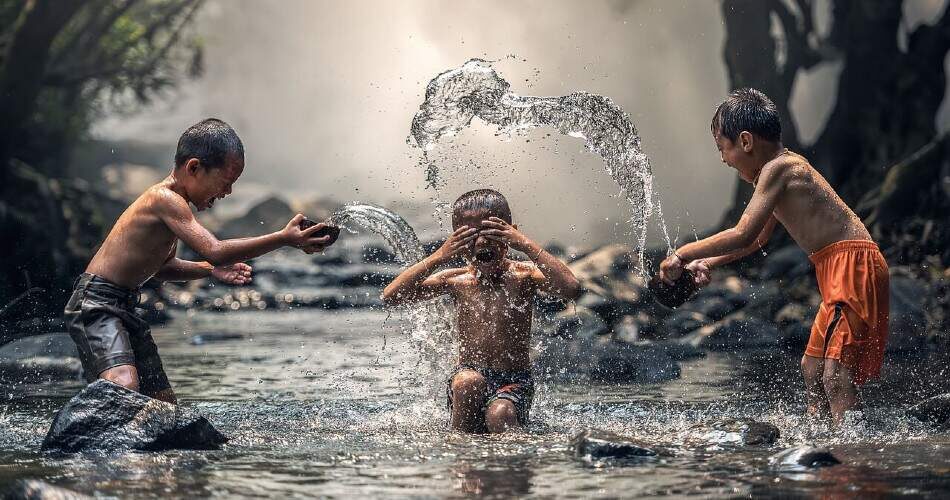Estimated reading time: 4 minutes
Ecosystem is a term used to represent the circle of life in a given area. The term ecosystem refers to living and non-living entities within an area, which thrive off one another and depend on each other for survival. Along with plants, marine life, and other animals, ecosystems include soil, air, and water, which play vital roles in the preservation of the ecosystem’s function. Ecosystems lay in a delicate balance of give and take from its inhabitants and surroundings. It takes very little alteration to cause an ecosystem to suffer irreparable damage, resulting in loss of species, water, or even complete disintegration of the system as a whole. Pollution and other human-created factors are increasingly dangerous to ecosystems.
Provisions of an ecosystem
Nature offers many provisions for humankind. Marine ecosystems provide food in the form of fish for humans. The plant life and other marine life in this ecosystem work together with the water to provide healthy environments for fish to thrive, creating better fish for human consumption. Grassland ecosystems also benefit man. Grasslands provide food for livestock, which in turn are used by farmers for other goods, such as dairy products, meat, and hides. Alongside these animals, crops of barley, wheat, rye, and oats grow and are harvested for food. Forest ecosystems are fruitful on many different levels. Not only do the trees and plant life in forest provide clean air, the wildlife within these forests is commonly hunted for food and pelts. There are many cultures across the globe that relies heavily on hunted game for food. The animal and plant life within this ecosystem provide food for larger game, which in turn produce better animals for hunters. One final note about the benefits of ecosystems to human life comes in the form of one of the most overlooked assets our Earth has to offer – soil. Soil plays an important role in the water cycle of most ecosystems. Tough, rocky soil does not absorb water as readily as loose, inviting soil. For this reason, the plant life that relies of each type of soil is suited for that environment. Other roles soil plays include hosting seeds, which in time will grow into plants, retains and distributes minerals and nutrients to plants, and soil aids in the decomposition of dead and/or foreign matter in the environment. In addition to these specific benefits, it is safe to say that nearly every item used to better human life that comes from nature has relied on an ecosystem to survive to that point. Fruit, vegetables, firewood, oils, and even cotton for clothing were once vital parts of an ecosystem and now benefit humans and their way of living.
Reckless man
Ecosystems are disintegrating all over the world. Humans have disrupted many aspects of thriving ecosystems and pushed them beyond the point of sustainability. With these detrimental advances, humans run the risk of losing the comforts and necessities they have held so dear for centuries. In marine ecosystems, humans have been routinely over-harvesting fish for decades. This has caused a rapid decline in population, and even extinction. It is approximated that one species of marine life is completely decimated every hour. This rate is alarmingly high, considering that over-harvesting has been going on for so many years. Another culprit to the over-fleecing of marine life is the advancement of human technology. While humans advance in their technology and learn more efficient ways to do certain tasks, like fishing, the ecosystems that are targeted suffer loss that is even more drastic.
Forests also suffer from humankind. Deforestation for goods has caused as many as 13 hectares per year to be destroyed. This land is sometimes used to compensate for urban sprawl. The population of Earth has doubled that of the population four decades ago. Land that is cleared to make room for more housing or crops loses its entire ecosystem balance. Without their shade, roots, and other provisions, the resident wildlife, flora, and fauna will not be able to survive, as well.
Population increases also cause need for more of the goods and services provided by ecosystems. Along with more land, humans are taking more from the environment. As the need to feed, clothe, and shelter more humans arise, the ecosystems that provide these necessities become stripped of their goods and lose vital pieces to their ecosystem puzzle. Because ecosystems feature a delicate balance of give and take, some of the damages caused by over-use of these resources are irreversible.
Ecosystems are a vital piece of the circle of life. As each part of an ecosystem contributes to the survival of the system as a whole, disruption to one or more aspects of that system can cause the entire ecosystem to collapse, be less productive or die-off completely. As man takes all he desires from these delicate environments, the balance of the Earth becomes increasingly off-kilter. It is vital that humans become more respectful of these ecosystems and the benefits they offer before they are gone forever.
If you want to find out about the biggest threats facing plants and animals, check out our article on this topic: What are the biggest threats facing plants and animals?
[Photo from Pixabay]
